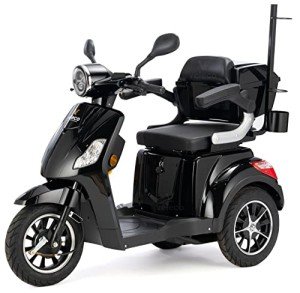Mobility Scooters: A Comprehensive Guide
Mobility scooters have actually ended up being an essential mode of transport for lots of individuals facing mobility difficulties. This article explores the numerous elements of mobility scooters, including their types, benefits, functions, and a guide for potential buyers.
Comprehending Mobility Scooters
Mobility scooters are electrically powered devices designed for individuals with restricted mobility. They supply a method of transportation for individuals who might have trouble strolling but still desire to maintain their independence. They can be found in various designs and features to accommodate a wide variety of requirements.
Types of Mobility Scooters
Mobility scooters can usually be classified into three primary types:
| Type | Description | Best For |
|---|---|---|
| Compact Scooters | These are small and lightweight, ideal for inside your home and short journeys. | Users with minimal storage space or those who travel typically. |
| Mid-size Scooters | A balance between portability and stability, suitable for both indoor and outside usage. | Those who require to cover a variety of surfaces. |
| Durable Scooters | Large and robust, designed for rugged outdoor usage and much heavier individuals. | Users needing extra weight capability or going off-road. |
Secret Features of Mobility Scooters
The choice of mobility scooter typically depends on the features that line up with individual requirements. Here are a few of the key functions to consider:
- Weight Capacity: Mobility scooters include various weight limits. It is vital to choose a scooter that can adequately support the user's weight.
- Variety: The range a scooter can take a trip on a single charge varies. Depending on user requirements, one might select scooters with a variety of as much as 40 miles.
- Speed: Most mobility scooters can reach speeds in between 4 to 8 miles per hour. Consider what speed is comfortable and safe for the intended environment.
- Turning Radius: A compact turning radius is important for indoor use, permitting simpler navigation in tight areas.
- Battery Type: The kind of batteries utilized can affect the scooter's performance. Lead-acid and lithium-ion batteries are the most common.
Benefits of Using Mobility Scooters
The advantages of mobility scooters extend beyond just transport. Some key advantages consist of:
- Independence: Users can browse their environment without counting on caretakers, promoting independence and self-esteem.
- Health Benefits: Using a scooter can motivate outdoor activity, leading to physical and mental health enhancements by decreasing feelings of isolation.
- Convenience: Scooters can quickly be run in numerous environments, whether indoors, in shopping center, or outdoors.
Essential Considerations When Buying a Mobility Scooter
When purchasing a mobility scooter, a number of considerations can help ensure that you pick the best design:
Assess Individual Needs:
- Mobility level: Consider just how much assistance the individual will require.
- Variety of use: Determine where the scooter will mostly be used (indoors, outdoors, on rough surfaces, etc).
Test Drive:
- Always test drive several designs to find a suitable fit. Take notice of comfort, ease of steering, and the scooter's responsiveness.
Review Safety Features:
- Look for scooters with sufficient safety features like lights, indicators, and anti-tip designs.
Check Warranty and Service Options:
- A reliable service warranty and available service choices are vital for long-term usage.
FAQs about Mobility Scooters
1. How quickly do mobility scooters go?Mobility scooters typically have speeds ranging from 4 to 8 mph, with a lot of developed for safety rather than high-speed travel. 2. Are there weight constraints on mobility scooters?Yes, mobility
scooters feature specific weight limitations, typically varying from
250 lbs to over 500 pounds, depending upon the design. 3. Can mobility scooters be utilized indoors?Certain designs, especially compact scooters, are particularly designed for
indoor use and are easier to steer in tight spaces. 4. How often do the batteries need to be replaced?Battery life can vary based on use, however typically, with appropriate care, batteries may last between 1 to 3 years before requiring replacement
. 5. Are mobility scooters covered by insurance?Coverage can vary, however some insurance plans, including Medicare and Medicaid, may cover part of the cost. It's suggested to consult private insurance suppliers. Mobility scooters function as a
valuable tool for many individuals, allowing them to keep
their freedom and self-reliance. By understanding the various types and features of mobility scooters, people can make informed decisions customized to their specific requirements.
Whether utilized for errands, socializing, or leisurely activities, mobility scooters can enhance the quality of life for those with mobility limitations. Purchasing scooters for mobility is a decision that can substantially affect an individual's life. Therefore, people need to thoroughly examine their choices and pick a model that best aligns with their lifestyle and mobility requirements
.

